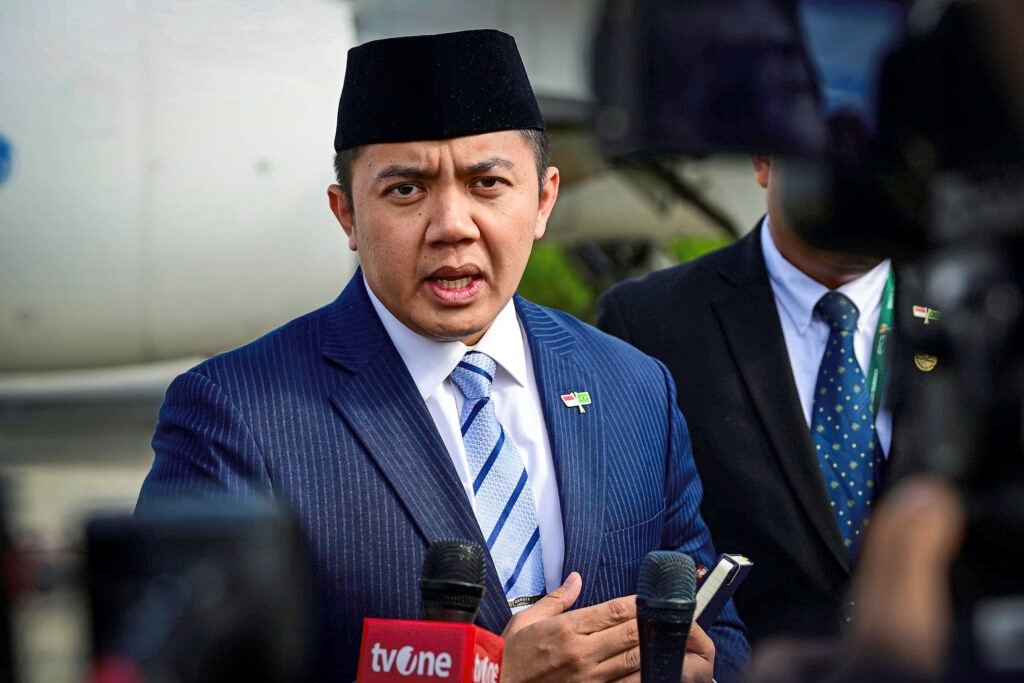Gov’t to Provide Assistance for Education Sector amid COVID-19 Pandemic

Islamic boarding school Al Amiriyah, Tegal, Central Java Province. (Photo by: Ministry of Public Works and Housing)
The Government is drafting an affirmative policy for education sector, in particular Islamic boarding schools and religious education amid COVID-19 pandemic.
According to Coordinating Minister for Human Development and Culture Muhadjir Effendy, Islamic schools and religious education do need attention from the Government, not only on the management of distance learning amid the pandemic, but also provision of social assistance.
He went on to say that Ministry of Religious Affairs has conducted a technical discussion regarding the policy, while Ministry of Finance has approved a total budget of Rp2.36 trillion for the implementation of it.
“Coordinating Ministry for Human Development and Culture is responsible to coordinate with stakeholders before the policy is reported to the Vice President and finalized in a Limited Cabinet Meeting,” Muhadjir said during a Ministerial Meeting through video conference on Affirmative Policy for Islamic Boarding Schools and Religious Education, Jakarta, Monday (8/6).
Muhadjir further said that distribution of the budget should consider proportionality of each Islamic school. Regarding operational assistance for Islamic schools or other religious educational institutions, Ministry of Religious Affairs should lead the drafting of technical guidelines on this matter.
“This issue of proportionality is very important; the number of santri (Islamic boarding school students), the number of teachers, caretakers, and others. If possible, the data will be used as a basis for affirmative policy for Islamic schools in the future,” Muhadjir added.
On that occasion, he further said that Coordinating Ministry for Human Development and Culture has proposed electricity component to be included in the scenario of social aid provision for Islamic schools despite social aids from Ministry of Social Affairs and Ministry of Villages, Disadvantaged Regions and Transmigration.
“Ministry of Religious Affairs is expected to prepare a map of 21 thousand Islamic schools across the country and decide which schools that will get assistance from by Ministry of Public Works and Public Housing. The Ministry will give additional facilities, including ablution stations, toilets, and hand washing stations that will be standards of facilities at schools,” the Coordinating Minister said.
In the meantime, he added, Ministry of Religious Affairs has claimed that it will immediately prepare the data of more than 1.2 million preachers completed with their names and addresses. We can also integrate their citizenship identity numbers (NIK) with the Social Affairs Ministry’s Integrated Data of Social Welfare (DTKS) to avoid duplication in social assistance distribution.
“Islamic schools should become a model for the implementation of the new normal by prioritizing a clean and healthy lifestyle,” he said.
On the affirmative policy for religious education, Muhadjir said that it will be further specifically discussed. In addition, he said that Ministry of Education and Culture is asked to fully involve in issues related to Islamic schools.
“Islamic schools are also expected to coordinate with community health center (Puskesmas) or health care facilities (fasyankes) to improve healthcare services in Islamic schools and also monitor the development of COVID-19 transmission which will be used to take necessary measures in doing schools activities,” Muhadjir added.
On reopening of Islamic schools, he further explained that it depends on the COVID-19 Task Force in respective regions. Therefore, he asked schools’ caretakers to coordinate with relevant parties and carefully calculate the impact so there will be no new COVID-19 cluster and still follow health protocols with discipline. (PR of Human Development and Culture Coordinating Ministry/EN)
Translated by: Syarifah Aisyah
Reviewed by: Mia Medyana








